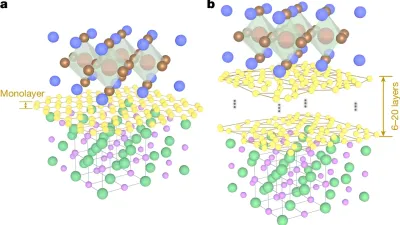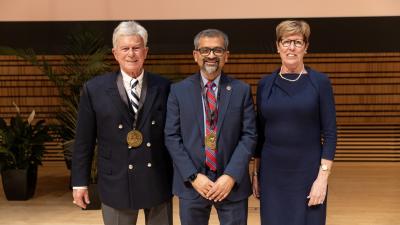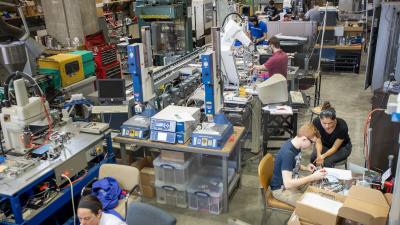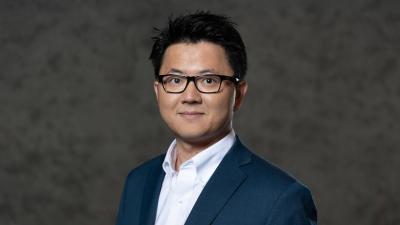Patrick Underhill, Professor and Associate Head of Chemical and Biological Engineering, was elected to be the new Secretary/Treasurer of the American Physical Society Division of Soft Matter (APS DSOFT). The four-year term will begin in March 2026 at the Global Physics Summit in Denver, CO.
Julie Yang Won Poster Prize at AIChE 2025
Tarek Dinar, CBE M.S. student, has been selected as a recipient of the prestigious Founders Award of Excellence. This honor recognizes exceptional academic achievement, leadership, and contributions to the campus community. Tarek will be formally recognized at the Honors Convocation ceremony on Saturday, October 25, 2025, an annual event that celebrates student excellence as part of the broader Founders Day and Family Weekend festivities,
Alex Rishty, CBE Ph.D. student, has been selected as a recipient of the prestigious Founders Award of Excellence. This honor recognizes exceptional academic achievement, leadership, and contributions to the campus community. Alex will be formally recognized at the Honors Convocation ceremony on Saturday, October 25, 2025, an annual event that celebrates student excellence as part of the broader Founders Day and Family Weekend festivities,
Thomas Neuman, CBE Ph.D. student, has been selected as a recipient of the prestigious Founders Award of Excellence. This honor recognizes exceptional academic achievement, leadership, and contributions to the campus community. Thomas will be formally recognized at the Honors Convocation ceremony on Saturday, October 25, 2025, an annual event that celebrates student excellence as part of the broader Founders Day and Family Weekend festivities,





 RPI Researchers Advance Understanding of Semiconductor Crystal Growth
RPI Researchers Advance Understanding of Semiconductor Crystal Growth
 RPI Engineering Elevated with Investiture of Shekhar Garde as Thomas R. Farino, Jr. ’67 and Patricia E. Farino Dean
RPI Engineering Elevated with Investiture of Shekhar Garde as Thomas R. Farino, Jr. ’67 and Patricia E. Farino Dean
 RPI Launches Semiconductor CoLab to Advance Microelectronics Research and Education
RPI Launches Semiconductor CoLab to Advance Microelectronics Research and Education
 RPI to Highlight Advanced Manufacturing Career Paths with National Manufacturing Day Event
RPI to Highlight Advanced Manufacturing Career Paths with National Manufacturing Day Event
 RPI Professor Shaowu Pan Receives Dual Awards for Advancing AI and Clean Energy Solutions
RPI Professor Shaowu Pan Receives Dual Awards for Advancing AI and Clean Energy Solutions